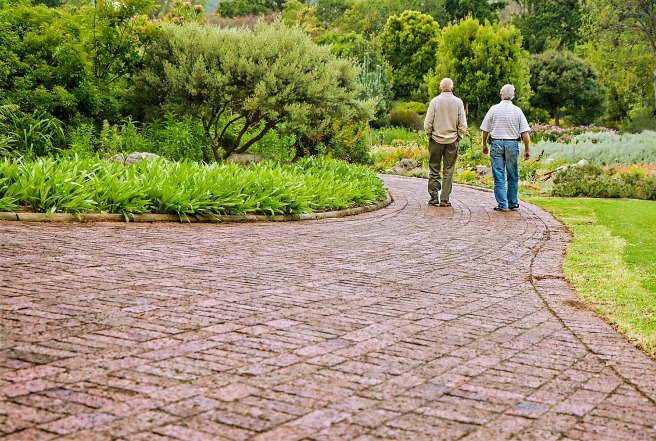Tai Chi is a Chinese martial art that has been sweeping the older adult scene (yes, you older adults definitely have a “scene,” so embrace it!). Its a mind-body practice that seems to be made for aging individuals. It encompasses all the components of a great, preventative health exercise–slow moving, low impact and it doubles as a meditative practice. Meditating and exercising all at once?! Count us in!
The purpose of Tai Chi is to get your Qi, or life energy, flowing through your entire body while unblocking any channels that may be clogged. It is also said to balance the Yin and Yang in your body. Even if you don’t believe in these concepts, they can be boiled down into more Western ideas — when we have balanced movement and flow in all aspects of our lives, we all feel like we have a better quality of life than when we feel “stuck.”
This is a great Harvard Health article that breaks down the practice of Tai Chi, as well as some of its benefits. Physically, Tai Chi, when practiced regularly, will improve your muscle strength, flexibility, balance and aerobic conditioning. It can be done at multiple levels–so find one that works for you, in your current physical state. Mentally, Tai Chi can have all the same benefits as meditation like stress and anxiety relief, better coping abilities, feeling more energized and increased happiness.
When I was in China, my group practiced Tai Chi every morning with a Tai Chi instructor. One morning we had the pleasure of meeting a Tai Chi master well into his 90s. He had my entire group in stitches. After he demonstrated some advanced Tai Chi moves that my young body could not have mastered at that time, he began his monologue about the benefits of Tai Chi. He told us all of our aging parents and grandparents were unhealthy because they did not practice Tai Chi. He claimed to have zero health issues, and from the looks of it he was not exaggerating. His delivery was hysterical, but he had a point–dedication to a preventative health practice like Tai Chi can work wonders on an aging body.
Try it out here (but be sure to check with your doctor if you have health concerns that could make Tai Chi dangerous for you):





